Ian Black at The Guardian:
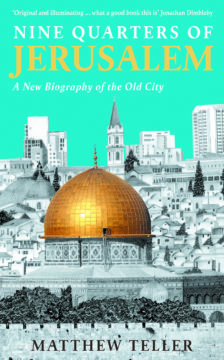 In modern times – at least since the mid-19th century – the Old City of Jerusalem has been conventionally described by foreigners as consisting of four distinct quarters: Muslim, Christian, Jewish and Armenian. Matthew Teller, in his highly perceptive and readable book, tells a very different story.
In modern times – at least since the mid-19th century – the Old City of Jerusalem has been conventionally described by foreigners as consisting of four distinct quarters: Muslim, Christian, Jewish and Armenian. Matthew Teller, in his highly perceptive and readable book, tells a very different story.
Teller, a freelance journalist and documentary-maker, combines millennia of Jerusalem’s history with insightful interviews with its residents, weaponising that unusual approach to present a subtle portrait of the current reality at the heart of the world’s most intractable and divisive conflict. The Old City is still enclosed by 16th-century walls built by the Ottomans and only started to expand beyond them in the 1860s when Britain, then the rising global superpower, began to take an interest, reinforced by its Protestant Christian identity.
more here.

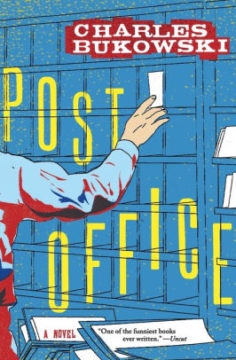 HALF A CENTURY AFTER the publication of Post Office (1971), how should we understand Charles Bukowski’s literary achievement? His publisher predicted that Bukowski would never reach a mainstream audience. And yet his books, including his poetry, have sold millions of copies in more than a dozen languages. Writing for The New Yorker in 2005, Adam Kirsch
HALF A CENTURY AFTER the publication of Post Office (1971), how should we understand Charles Bukowski’s literary achievement? His publisher predicted that Bukowski would never reach a mainstream audience. And yet his books, including his poetry, have sold millions of copies in more than a dozen languages. Writing for The New Yorker in 2005, Adam Kirsch  “Living in America during the Reagan years had the same disorientation as a texture dream,” writes David Wojnarowicz in
“Living in America during the Reagan years had the same disorientation as a texture dream,” writes David Wojnarowicz in  One summer afternoon when I was 23 — this was in 1987 — I was twiddling the dial on the radio in the apartment I was subletting on 114th St. when I stumbled on a station that was unlike anything that I had ever heard before. They were in the middle of a story about the Appalachian Trail, profiling some of the people who were hiking its two thousand miles that year. The reporting was calm, patient, intelligent, allowing the subject to find its own shape, unfolding slowly, minute after minute, like the trail itself.
One summer afternoon when I was 23 — this was in 1987 — I was twiddling the dial on the radio in the apartment I was subletting on 114th St. when I stumbled on a station that was unlike anything that I had ever heard before. They were in the middle of a story about the Appalachian Trail, profiling some of the people who were hiking its two thousand miles that year. The reporting was calm, patient, intelligent, allowing the subject to find its own shape, unfolding slowly, minute after minute, like the trail itself.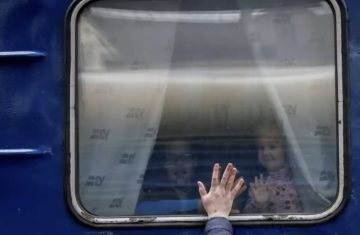 Here we are, in our ringside seats at a bloody circus, watching on TV and Twitter, trapped between infinite pity and rational self-interest. The tension between two opposing forces is unbearable. Pulling from one side, our horror at a senseless invasion, our wonder at the Ukrainian resistance, the unarmed villagers mobbing a Russian tank or feeding a
Here we are, in our ringside seats at a bloody circus, watching on TV and Twitter, trapped between infinite pity and rational self-interest. The tension between two opposing forces is unbearable. Pulling from one side, our horror at a senseless invasion, our wonder at the Ukrainian resistance, the unarmed villagers mobbing a Russian tank or feeding a 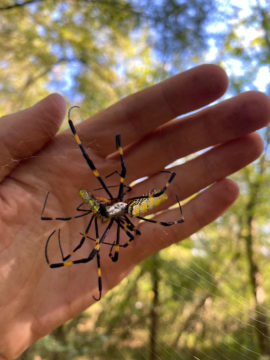 New research, published Feb. 17 in the
New research, published Feb. 17 in the  From 2012 to 2017, I worked as a US air force nuclear missile operator. I was 22 when I started. Each time I descended into the missile silo, I had to be ready to launch, at a moment’s notice, a nuclear weapon that could wipe a city the size of New York off the face of the earth.
From 2012 to 2017, I worked as a US air force nuclear missile operator. I was 22 when I started. Each time I descended into the missile silo, I had to be ready to launch, at a moment’s notice, a nuclear weapon that could wipe a city the size of New York off the face of the earth. WHAT, THOUGH, IF
WHAT, THOUGH, IF THERE IS AN ALMOST CHARMING
THERE IS AN ALMOST CHARMING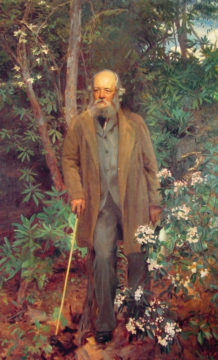 What would Frederick Law Olmsted (1822–1903) make of his works today, in the bicentennial year of his birth? No doubt he would be delighted by the survival and continued popularity of so many of his big-city parks, particularly Central Park and Prospect Park, but also parks in Boston, Chicago, and Montreal, as well as Buffalo, Detroit, Rochester, and Louisville. He might be surprised by the bewildering range of activities these parks now accommodate—not only boating and ice-skating, as in his day, but exercising, jogging, picnicking, and games, as well as popular theatrical and musical events. I don’t think this variety would displease him. After all, it was he who introduced free band concerts in Central Park, over the objections of many of his strait-laced colleagues. He would be pleased by the banning of automobiles; his winding carriage drives were never intended for fast—and noisy—traffic.
What would Frederick Law Olmsted (1822–1903) make of his works today, in the bicentennial year of his birth? No doubt he would be delighted by the survival and continued popularity of so many of his big-city parks, particularly Central Park and Prospect Park, but also parks in Boston, Chicago, and Montreal, as well as Buffalo, Detroit, Rochester, and Louisville. He might be surprised by the bewildering range of activities these parks now accommodate—not only boating and ice-skating, as in his day, but exercising, jogging, picnicking, and games, as well as popular theatrical and musical events. I don’t think this variety would displease him. After all, it was he who introduced free band concerts in Central Park, over the objections of many of his strait-laced colleagues. He would be pleased by the banning of automobiles; his winding carriage drives were never intended for fast—and noisy—traffic. These anxieties about status are acutely felt among a cohort for whom going to college can seem a foregone conclusion. Asian Americans are often held up as a “model minority,” a group whose presence on campuses like Harvard or M.I.T., where forty per cent of incoming first-years self-identify as Asian American, far outpaces their percentage of the U.S. population. The figure of the model minority emerged in the fifties, a reflection of Cold War-era policies that were designed to attract highly educated immigrants from Asia. Over time, this stereotype ossified. American meritocracy held up the immigrant as proof that its rules were fair, and many high achievers were flattered to play along. Even though many of the gains for Asian Americans could be explained through policy—and even as studies showed how entire swaths of the community were left behind in poverty—the experience of being Asian in America has been rigidly defined by a framework of success and failure. As the scholar erin Khuê Ninh argues in “
These anxieties about status are acutely felt among a cohort for whom going to college can seem a foregone conclusion. Asian Americans are often held up as a “model minority,” a group whose presence on campuses like Harvard or M.I.T., where forty per cent of incoming first-years self-identify as Asian American, far outpaces their percentage of the U.S. population. The figure of the model minority emerged in the fifties, a reflection of Cold War-era policies that were designed to attract highly educated immigrants from Asia. Over time, this stereotype ossified. American meritocracy held up the immigrant as proof that its rules were fair, and many high achievers were flattered to play along. Even though many of the gains for Asian Americans could be explained through policy—and even as studies showed how entire swaths of the community were left behind in poverty—the experience of being Asian in America has been rigidly defined by a framework of success and failure. As the scholar erin Khuê Ninh argues in “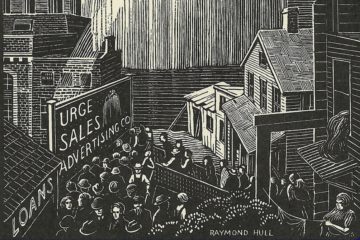 “Those who can, do science,” the economist Paul Samuelson once remarked. “Those who can’t, prattle on about methodology.” Until fairly recently this seemed to be the dominant attitude among mainstream economists, but a sea change came when the global financial system began to unravel in 2007. In the decade and a half since—painful years of sluggish recovery, stagnating real wages, yawning inequality, and populist upheaval—reflexive talk has exploded. Why was the crash not widely predicted? Was the “efficient market hypothesis” to blame? Have lessons from the Great Depression been forgotten? And why are core questions about finance, power, inequality, and capitalism still largely missing from Economics 101?
“Those who can, do science,” the economist Paul Samuelson once remarked. “Those who can’t, prattle on about methodology.” Until fairly recently this seemed to be the dominant attitude among mainstream economists, but a sea change came when the global financial system began to unravel in 2007. In the decade and a half since—painful years of sluggish recovery, stagnating real wages, yawning inequality, and populist upheaval—reflexive talk has exploded. Why was the crash not widely predicted? Was the “efficient market hypothesis” to blame? Have lessons from the Great Depression been forgotten? And why are core questions about finance, power, inequality, and capitalism still largely missing from Economics 101? The united states
The united states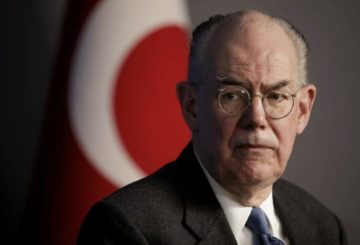 “Why is Ukraine the West’s fault?” This is the provocative title of a talk by Professor John Mearsheimer – a famous exponent of international relations (IR) realism – given at an alumni gathering of the University of Chicago in 2015. Since it was first posted on
“Why is Ukraine the West’s fault?” This is the provocative title of a talk by Professor John Mearsheimer – a famous exponent of international relations (IR) realism – given at an alumni gathering of the University of Chicago in 2015. Since it was first posted on